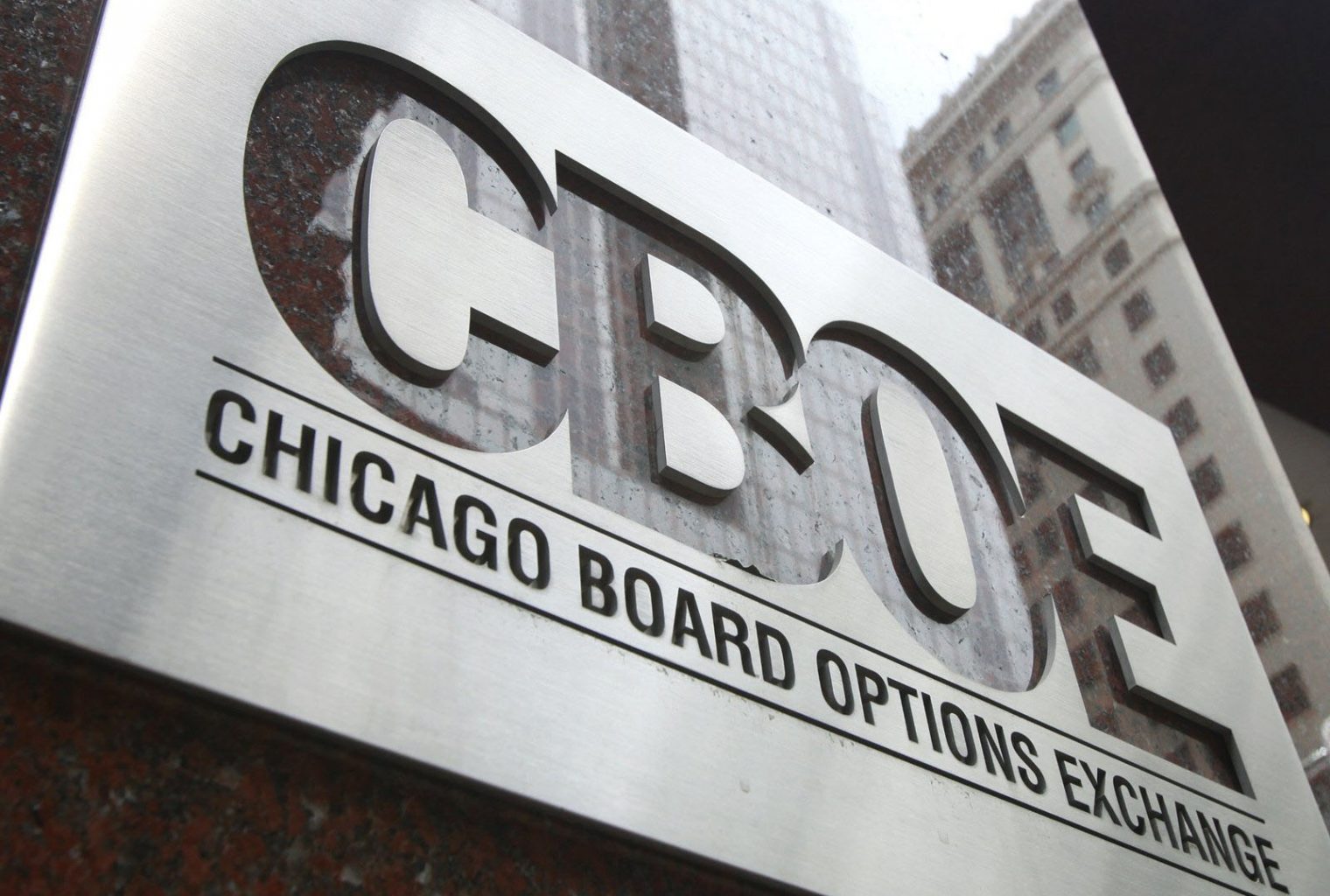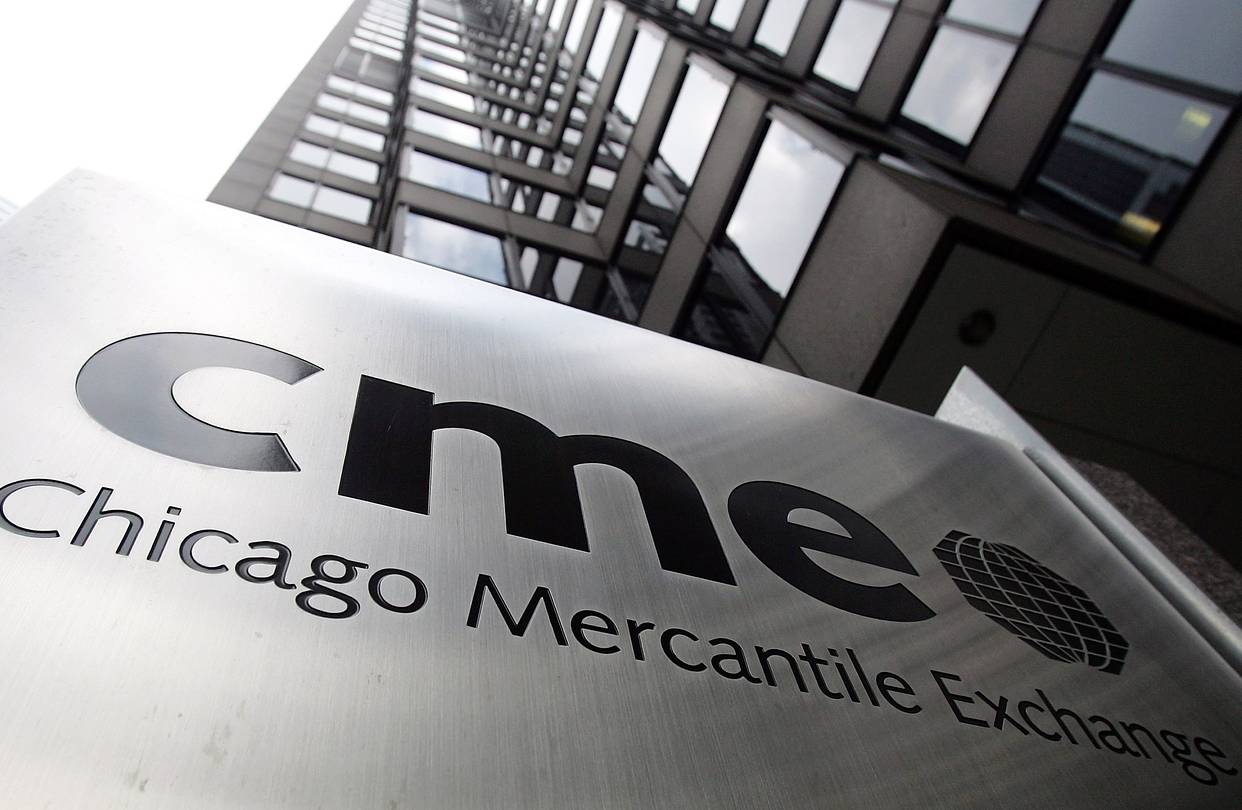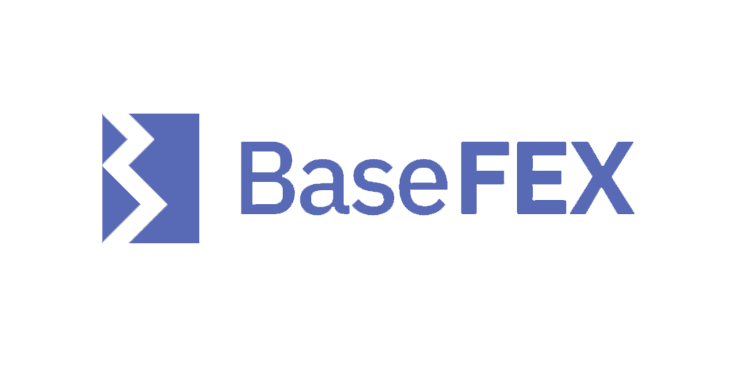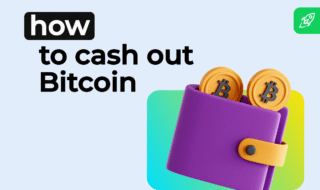We all know the story of how someone bought a cryptocurrency and then lost everything due to rates drastically changing all of a sudden or because of the unreliability of cryptocurrency exchanges. The proposed regulated public exchanges have become very popular among investors.
We will talk about bitcoin futures contracts from various websites, their history, and what place do they occupy in the ecosystem. Let’s understand Bitcoin futures together with Changelly!
Table of Contents
- What is Bitcoin Futures?
- How do BTC futures work?
- BTC Futures Trading Platforms
- #1. Chicago Board Options Exchange (CBOE)
- #2. The Chicago Mercantile Exchange (CME)
- #3. BitMEX Exchange
- #4. Kraken Exchange
- #5. Binance Exchange
- #6. BitFlyer Exchange
- #7. Coinflex
- #8. BaseFEX
- #9. OKcoin
- #10. Bakkt
- How to Start Trading BTC Futures?
- Bitcoin Futures Killed Crypto Bubble in 2017?
- Summary
- About Changelly
What is Bitcoin Futures?
Futures is a contract to buy or sell a particular asset at a specific price in the future. After the futures contract closes, both parties are required to fulfill their obligations at the agreed price, regardless of the actual market price at the contract’s expiration date. The goal is not always to make a profit. Often they are used in financial markets to protect against negative changes in the prices of certain assets.
Using futures contracts, you can open two types of positions: short and long.
- By taking a long one, you agree to buy the asset in the future at a certain price on the day the contract expires.
- By taking a short position, you agree to sell the asset at a certain price on the day the contract expires.
Futures also can be deliverable and settled. The deliverable suggests that, at the expiration date of the contract, the buyer should buy, and the seller should sell the underlying asset in quantity indicated in the specification to it.
Settled futures initially do not imply the delivery of the underlying asset, but only a monetary calculation in the amount of the difference between the contract price and the asset value at the settlement date. Such instruments are also mainly used for speculative purposes and hedging price risks.
How do BTC futures work?
Bitcoin futures are pegged to the bitcoin value. Thus, speculators can bet on it to either grow or to fall. Besides, futures allow investors to speculate on the price of bitcoin, without actually owning a cryptocurrency.
Bitcoin itself remains unregulated, but cryptocurrency futures are traded on regulated exchanges. This is good news for those who are worried about the risks associated with the unregulated, decentralized nature of crypto assets.
Bitcoin derivatives are no different from futures for traditional financial instruments. Speculators open long and short positions depending on the forecast of further price movements.
For example, if an investor has one bitcoin worth $8,000, and predicts a fall in prices in the future, he can sell futures to protect himself from losses. If in the future, the price of bitcoin falls, the derivatives will become cheaper. Then the investor will be able to repurchase it by closing a short position. For example, if by the expiration date, the contract falls to $6,000, the investor will be able to earn $2,000 on it and compensate the losses on the underlying asset (bitcoin).
BTC Futures Trading Platforms
Why does the economic world need Bitcoin futures? They give transparency, greater liquidity and efficient price discovery and evolve the crypto market. Besides the CME and CBOE platforms, which are strictly regulated by American laws, bitcoin futures are also presented on platforms such as BitMEX, Crypto Facilities, etc.
#1. Chicago Board Options Exchange (CBOE)

The Chicago Options Exchange (CBOE) pioneered Bitcoin Futures on December 10, 2017. CBOE offers short-term contracts for 1-4 weeks, medium-term derivatives with expiration in 1, 2 and 3 months and quarterly futures with the usual expiration calendar in March, June, September, and December.
The amount of investor profit depends on the official price of Bitcoin on the Gemini exchange, rounded up to $0.01. In other words, if the value of the contract increases, the buyer will receive the difference between the purchase and sale prices in dollars. If the value drops, the investor will pay this difference.
Most futures contracts have a limitation on the change in the price of the underlying asset per unit time. Bitcoin volatility is one of the main problems for investors. CBOE suspends trading for 2 minutes if the contract quotes change by 10% in any direction from the closing price of the previous day. Trades are suspended for 5 minutes if the futures price rises or falls by 20%.
- Launch date: 12/10/2017
- Ticker: XBT
- 1 Future Contract Cost: Equal to 1 BTC
- Fee: Here
#2. The Chicago Mercantile Exchange (CME)

CME offers contracts maturing in March, June, September, and December, plus two additional months outside this quarterly cycle. The final value here is calculated in accordance with the standardized reference value of bitcoin, which is determined by the CME exchange. Price data comes from leading bitcoin exchanges, including Bitstamp, GDAX, itBit, and Kraken.
CME has developed two standardized indexes for determining the execution price of bitcoin futures: CME CF Bitcoin Reference Rate (BRR) and CME CF Bitcoin Real Time Index (BRTI).
Bitcoin Reference Rate (BRR) is calculated once a day at 16:00 London time. This is similar to how the Central Bank of Russia sets official exchange rates every day. Thus, we can conditionally assume that the Bitcoin Reference Rate is the official Bitcoin exchange rate from the point of view of the CME exchange. The value of this index determines the strike price of the futures on the day of expiration.
Bitcoin Real Time Index (BRTI) is a real-time bitcoin index. This is the aggregated value of the bitcoin price according to data from all crypto exchanges that are used by the CME exchange to calculate the futures price.
The most popular futures contract on the CME exchange is E-mini futures on the S&P 500 stock index. Its daily turnover is more than 1 million contracts.
- Launch Date: 12/17/2017
- Ticker: BTC
- 1 Future Contract Cost: Equal to 5 BTC
- Fee: Here
#3. BitMEX Exchange

BitMEX was launched in 2014. The platform is famous for its impressive design with a lot of useful tabs. However, the platform is not easy-to-use and isn’t straightforward at all.
The service has several cryptocurrency futures. First of all, Bitcoin Futures are traded in perpetual contracts. That means that the contract does not have an expiry date. The offer is up to 1:100 leverage.
Moreover, BitMEX offers Cardano (ADA), Bitcoin Cash (BCH), EOS, Ethereum (ETH), Litecoin (LTC), Ripple (XRP) and TRON (TRX) futures contracts.
- Ticker: XBT
- 1 Future Contract Cost: 1 USD
- Fee: 0.025%
#4. Kraken Exchange

Kraken offers Ethereum, Litecoin, Bitcoin Cash, Ripple, and Bitcoin futures. Futures are incredibly useful in terms of capital, which means that opening positions require less money than in the case of spot trading (1:1) or margin trading (3:1 – 5:1).
If you have 10 Bitcoins and you are afraid of lower prices, you must commit 100% of your money for spot trading or 20% of your money for margin trading. With the leverage of 50:1 in futures, you entrust only 2% of your money to the exchange.
- Launch Date: 2019
- Ticker: XBT
- 1 Future Contract Cost: 1 USD
- Fee: Here
#5. Binance Exchange

In September 2019, the Binance cryptocurrency exchange announced the official launch of both platforms for trading cryptocurrency futures that were previously in test mode.
Platform A is called Binance Futures and is still available in beta mode for users with a referral code. The code owners have already become users who have previously tested the capabilities of the site and voted for it.
In addition, you can get it by participating in various activities on Binance social networks (Weibo, Twitter) or by contacting support. It will distribute up to 200 codes daily in a live queue.
Platform B has been renamed to Binance JEX, and everyone is already able to take advantage of its capabilities. It will also be possible to transfer funds from the main exchange to Binance JEX.
In addition to bitcoin futures, the platform also features EOS/USDT and ETH/USDT contracts.
- Launch Date: 2019
- Ticker: BTC
- Fee: Binance takes no fees for funding rate transfers as they happen directly between users.
#6. BitFlyer Exchange

Bitflyer was launched in 2017 in Japan. BitFlyer launched Lightning Bitcoin futures. It differs from CME and CBOE offers in that the minimum purchase amount is 0.001 BTC, 1000 times less than CBOE and 5000 times less than CME.
On this exchange, leverage is 1:4. Previously it reached 15. There are contracts with a maturity of 1 week to quarterly. Bitcoin futures here are bought not only by owners of relatively small capital.
- Ticker: BTC
- 1 Future Contract Cost: 1 USD
- Fee: Here
#7. Coinflex

Coinflex was opened in 2019 and registered in Hong Kong. On the site, you can trade deliverable cryptocurrency futures with leverage up to 20x. At the end of the crypto contract, you receive cryptocurrency directly. A strict policy of the exchange helps to avoid in-house trading.
Using leverage up to 20x, derivatives contracts will be traded against Tether stablecoin. Taker commissions are fixed at 0.03%. CoinFLEX uses a high-performance trading mechanism from Trading Technologies.
- Launch Date: 2019
- Ticker: XBT
- 1 Future Contract Cost: 1 USDT
- Fee: Here
#8. BaseFEX

The company is registered on Seychelles and the team is working from Hong Kong. Basefex exchange allows trading perpetual contracts for BTC and ETH with up to 100x leverage.
The contracts update every eight hours. The source has the Funding Rate system which contains Interest Rate and Discount.
The main advantage if the platform is low fees. However, the company does not have any social media activity which is definitely a con.
- Ticker: BTC
- 1 Future Contract Cost: 1 USD
- Fee: The maker fees are always 0 percent. The taker fees are either 0.2 percent or 0.05 percent, depending on the contract
#9. OKcoin

OKcoin was founded in 2013 in China. The company offers Bitcoin futures which have around leverage of 10/20x. The fees are not so high and the platform has many advanced trading options.
8 futures contracts are available to traders:
- Bitcoin (BTC)
- Litecoin (LTC)
- Ethereum (ETH)
- Ethereum Classic (ETC)
- Bitcoin Cash (BCH)
- Ripple (XRP)
- Eos
- Bitcoin Gold (BTG)
The key advantage is the reduced commission (from 0.015%). However, the tools are very risky. Therefore they are recommended only for experienced traders. The cost of futures contracts is fixed for each cryptocurrency.
The price is different for each coin, for example, for Bitcoin, it is $100. The exchange offers several futures contracts for each cryptocurrency, differing by the end date. For example, futures BTC0226 means that this Bitcoin contract expires on February 26th.
- Launch Date: 2014
- Ticker: BTC
- 1 Future Contract Cost: 1 USD
- Fee: Here
#10. Bakkt

In late September, the Bakkt cryptocurrency platform began trading bitcoin futures on its own market, the operator of the New York Stock Exchange Intercontinental Exchange (ICE).
Contracts offered by the platform will allow market participants to bet on future changes in bitcoin prices and receive payments in cryptocurrency, which distinguishes them from the existing regulated futures of the Chicago Mercantile Exchange (CME), which allow you to receive only the fiat equivalent of the earned bitcoins.
According to the observations of analyst Alex Krüger, for the first day, the volume of Bitcoin futures trading on the Bakkt platform was 75 times lower than on the Chicago Mercantile Exchange (CME) for the same period.
Bakkt will help institutionalize the market. Nevertheless, given the tiny trading volume, while the launch of the site has not met the expectations of many market participants.
Trading hours are 8:00 p.m. EPT to 6:00 p.m. EPT, Sunday to Friday.
Here is a table with all info about fees on Bakkt:
| Fee Category | Bakkt Bitcoin Daily Futures | Bakkt Bitcoin Monthly Futures |
| Exchange and Clearing Fee – Screen Trades | $1.00/contract | $1.25/contract |
| Exchange and Clearing Fee – EFP & Block Trades | $1.60/contract | $1.85/contract |
| Delivery Fee | $9.75/contract | $9.75/contract |
- Launch Date: 2019
- Ticker: BTC
- 1 Future Contract Cost: 1 USD
How to Start Trading BTC Futures?
Technically, trading is simple. You should register on a website working with Bitcoin futures, fund your account, buy and sell contracts. Difficulties begin when choosing strategies. Spontaneous movements, the result of entering a major player, all that is impossible to predict.
Standard strategies work well on Bitcoin. Differences in the outlines of futures and conventional pairs on cryptocurrency exchanges are neglected. The following techniques work on cryptocurrency:
- techniques from graphic analysis – levels, trend lines, graphic patterns, correction Fibonacci levels. Candlestick analysis is also applicable to cryptocurrencies;
- The buy-and-hold strategy broke down at the end of 2017. Now you cannot buy Bitcoin and expect it to grow continuously in the coming months. The market stagnated for months, and in 2018 annual minimums were repeatedly updated;
- indicator strategies;
- analysis of the “foundation” is also important. It is possible to predict the behavior of Bitcoin according to the available data about crypto, but it is better to use this approach paired with other methods of market analysis.
Bitcoin Futures Killed Crypto Bubble in 2017?
The former head of the CFTC, Christopher Giancarlo, made a sensational admission. He claimed that the launch of bitcoin futures on the Chicago Mercantile Exchange (CME Group) was a deliberate action by the Donald Trump administration, designed to burst the cryptocurrency market that had formed by then.
“One of the untold stories of recent years is that the CFTC, the US Treasury, the Securities and Exchange Commission (SEC) and the then director of the National Economic Council, Gary Cohn, felt that the launch of bitcoin futures would help to burst the bitcoin bubble. And it worked.”
Giancarlo also believes that the Bitcoin bubble cannot be considered in isolation from the 2008 financial crisis.
“With the end of the 2008 crisis, regulators received a portion of reasonable criticism. Where were they when the mortgage bubble grew? Why didn’t they burst it while they had such an opportunity?”
Summary
Many experts are confident that the emergence of bitcoin futures in the traditional market contributes to the mass adoption and popularization of cryptocurrencies, as mainstream investors will become less skeptical about cryptocurrencies. This can stimulate demand and have a positive effect on the price and market capitalization in the long run.
The emergence of traditional financial instruments based on Bitcoin actually means its recognition by regulators as an object of investment. The fact that bitcoin futures are gaining popularity in the tightly regulated and the largest in the world US market can serve as an example for financial institutions from other countries. Among other things, in jurisdictions where cryptocurrency trading is prohibited, futures allow speculating on the price of their underlying digital assets.
On the other hand, large market participants have the opportunity to open short positions, a large volume of which may put pressure on the price of Bitcoin.
In general, the integration of the cryptocurrency market with the traditional one can potentially contribute to the massive adoption of new assets, and hence their long-term growth.
Do you agree with that prediction? Want to take part in future growth? You can buy some crypto by using our services!










Please review btse.com as well, thank you!